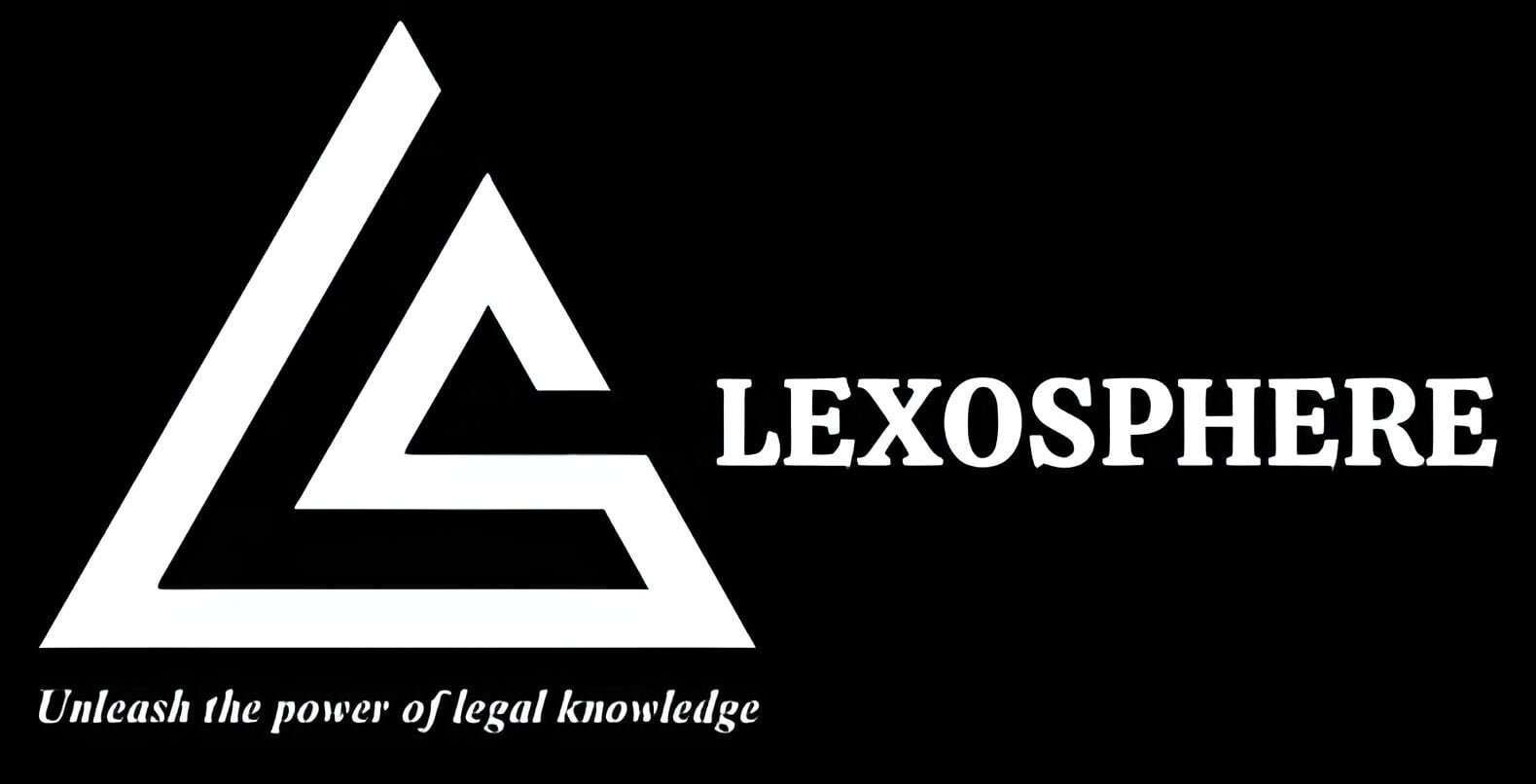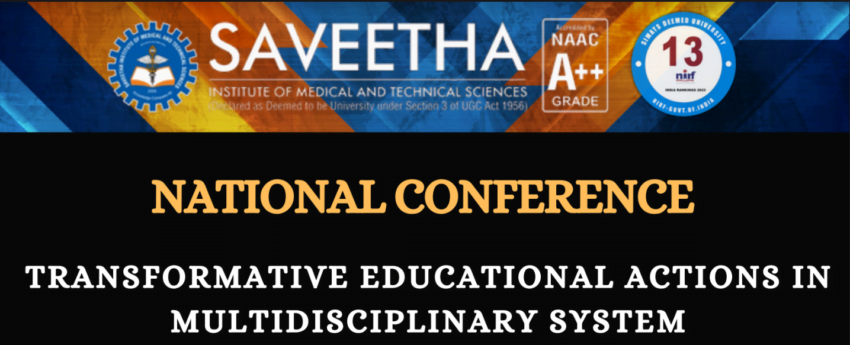Table of Contents
ABOUT SIMATS
The Saveetha Medical and Educational Trust were created in 1986 mainly to provide medical relief, to promote Education and encourage Research. The Trust started a Saveetha Dental College and established an attached General Hospital in the year 1988. Subsequently the Trust established a Nursing College, Physiotherapy College, Occupational Therapy College, Law College and an Engineering College in order to comply with our commitment and to serve the people, especially those living in Rural Village in and around Chennai and adjoining districts of Tamil Nadu. The SIMATS received Accreditation by National Accreditation Board for Hospitals and Healthcare providers and National Accreditation Board for Laboratories for RT PCR Testing for Covid-19. The institution has total student strength of 10000 and 1500 faculties with non-teaching staff around 2500. SIMATS is ranked among the top 10 Indian Universities and claimed 395 thrank in World in 2020 UI Green Metric World University Rankings on Sustainability by University of Indonesia, Jakarata. SIMATS has been recognized as Social Entrepreneurship, Swachhta & Rural Engagement Cell (SES REC) Institution by Mahatma Gandhi National Council of Rural Education, Department of Higher Education, Ministry of Education, and Government of India.
ABOUT SIMATS NODAL CENTRE
In a significant stride towards shaping the future of education in India, SIMATS University Chennai proudly announces its designation as a Nodal Center for the implementation of the National Educational Policy (NEP). This prestigious appointment underscores SIMATS’ commitment to pioneering educational reforms and fostering excellence in academia. As a nodal center, SIMATS University assumes a pivotal role in spearheading the execution of NEP initiatives, thereby contributing to the nation’s educational advancement and societal development.At the heart of SIMATS’ ethos lies a dedication to fostering innovation, inclusivity, and holistic learning experiences. Through its multifaceted approach to education, SIMATS empowers students to become global citizens equipped with the skills, knowledge, and values necessary to thrive in an everevolving world.
ABOUT THE CONFERENCE
The objectives of this Conference on NEP include:
- Understanding the Policy Framework: Participants delve into the key principles, goals, and strategies outlined in the NEP, gaining a comprehensive understanding of its vision and objectives.
- Addressing Implementation Challenges: Discussions focus on identifying potential barriers and challenges in implementing the NEP, ranging from resource constraints to bureaucratic hurdles, and brainstorming solutions to overcome them.
- Sharing Best Practices: Stakeholders share success stories, innovative practices, and lessons learned from educational initiatives implemented in line with the NEP, providing inspiration and guidance for others.
- Promoting Stakeholder Engagement: The symposium fosters dialogue and collaboration among diverse stakeholders, encouraging active participation and ownership of the educational reform process. Ensuring Equity and Inclusion: Sessions may explore strategies for ensuring equitable access to quality education for all learners, including marginalized and disadvantaged groups, as envisioned in the NEP.
- Harnessing Technology and Innovation: Participants discuss the role of technology and innovation in transforming teaching and learning processes, enhancing educational outcomes, and aligning with the goals of the NEP.
- Empowering Educators: The symposium may include professional development workshops and discussions aimed at equipping educators with the knowledge, skills, and resources needed to implement the NEP effectively in their classrooms and institutions.
- Seeking Feedback and Input: Opportunities are provided for participants to provide feedback on the NEP, share their perspectives, and contribute ideas for its refinement and improvement.
Overall, this conference on the National Education Policy serves as a dynamic forum for collaboration, learning, and collective action towards realizing the vision of a quality, inclusive, and future-ready education system for all citizens. By fostering dialogue and partnerships, such symposiums play a crucial role in driving positive change and advancing the goals of educational reform.
ELIGIBILITY
Educators, academics, activists, think tanks, researchers, scholars, students, professionals, and other relevant stakeholders from all disciplines are welcome to contribute to this conference. We invite research papers presenting original and unpublished work of conceptual, constructive, empirical, experimental, or theoretical nature in all areas related to the conference theme.
THEME OF THE CONFERENCE
Transformative Educational Actions in Multidisciplinary System
- Invoking core and ethical values
- Multidisciplinary approach in experimental learning
- Wielding the gaps in educational sector
- Reforms in enriching value added education
- Cultural, language and holistic education
- Innovative and sustainable pedagogies in learning
- Digital literacy and interdisciplinary learning
- Catalysing quality academic research
- Usage of digital resources to enhance learning experience
Educators, academicians, activists, think tanks, researchers, scholars, students, professionals, and other relevant stakeholders of all disciplines are invited to contribute to this conference.
SUBMISSION CATEGORIES
- Students in UG/ PG
- Co- authored papers
- Students of Saveetha School of Law
- Co- authored papers from Saveetha School of Law
- Research Scholars
- Professionals/ Academicians
- Participants
FORMATTING CATEGORIES
- Papers submitted should not exceed 4000 words (excluding footnotes) with an abstract of 250 – 300 words.
- The body of the manuscript shall be in Times New Roman, size 12, 1.5 line spacing.
- Footnotes should be in Times New Roman, size 10, single line spacing.
- Citations: Bluebook 21st edition Margin of 4 cm shall be left on all sides of the paper. Page borders shall not be used. Authors must ensure that their work is original and properly cites sources when using others’ work.
- Plagiarism in any form, including self-plagiarism, is strictly prohibited and may result in rejection or retraction. The originality of the paper should not be less than 80%. Authors and Co-authors of the selected abstract must complete the registration process. The registration form will be sent via email to selected authors.
SUBMISSION GUIDELINES
- The abstract and the soft copies of the research papers must be submitted to the mail id “sslnepconference2k24@gmail.com”. Submissions made through other channels will not be
- Co-authorship is limited to a maximum of two authors. The author(s) bear the sole responsibility for the accuracy of facts, opinions or views expressed in the submissions.
- PUBLICATION: All the selected papers will be published in an edited book bearing an “ISBN number”. The said book will be released during Inaugural Ceremony. Interested candidates must pay the processing charges to avail hard copy of the Book.
REGISTRATION FEES
- Students in UG/ PG : Rs. 800/-
- Co- authored papers: Rs. 1200/-
- Students of Saveetha School of Law: Rs. 600/-
- Co- authored papers from Saveetha School of Law: Rs. 1000/-
- Research Scholars: Rs. 1100/-
- Professionals/ Academicians: Rs.1300/-
- Participants: Rs.550/-
- Hardcopy of the published book: Rs.950/-
The soft copy of the Book will be sent over to all the paper presenters. The presenters will have to make the above mentioned amount for the hard copy
REGISTRATION PROCESS
- The abstract of the research paper must be sent to “sslnepconference2k24@gmail.com” before 1st June, 2024.
- The presenters shall register after receiving the confirmation mail.
- Registration Link: https://forms.gle/goWWdPDrwpFPy9fa8
IMPORTANT DATES
- Last date for submission of Abstract: 1st June, 2024
- Acceptance of Abstract: 24nd May, 2024
- Last Date of Final Registration: 27th May, 2024
- Last Date of submission of Full Paper: 03rd June, 2024
- Submit the paper at “sslnepconference2k24@gmail.com”
- The acceptance of papers is based on submitted abstracts, which will undergo a blind peer review process. Authors must submit a concise abstract of 250 – 300 words with 5-8 keywords.
CONTACT INFORMATION
FACULTY COORDINATORS
- Ms. KEERTHNA. G : +91 6374946223
- Ms. THARINI RAJASINGAM : +91 7904008565
STUDENT COORDINATORS
- A. RAAHUL : +91 9003277295
- J.V. MALAVIKA LAKSHMI : +91 9840474714
share this post on

